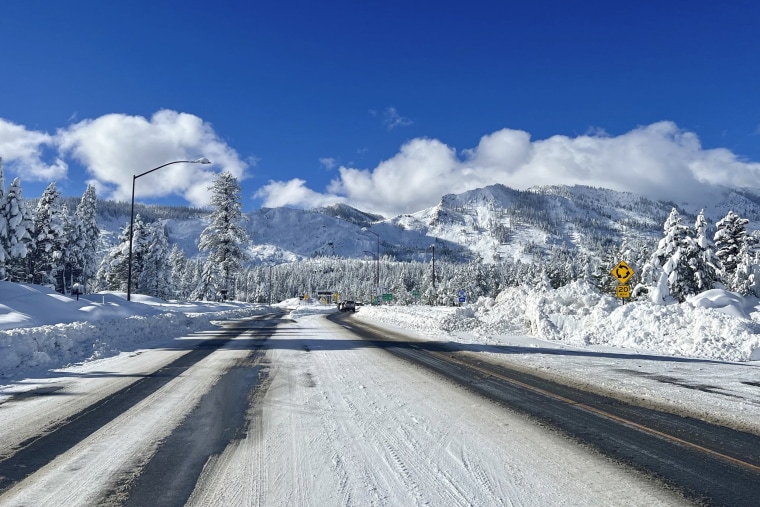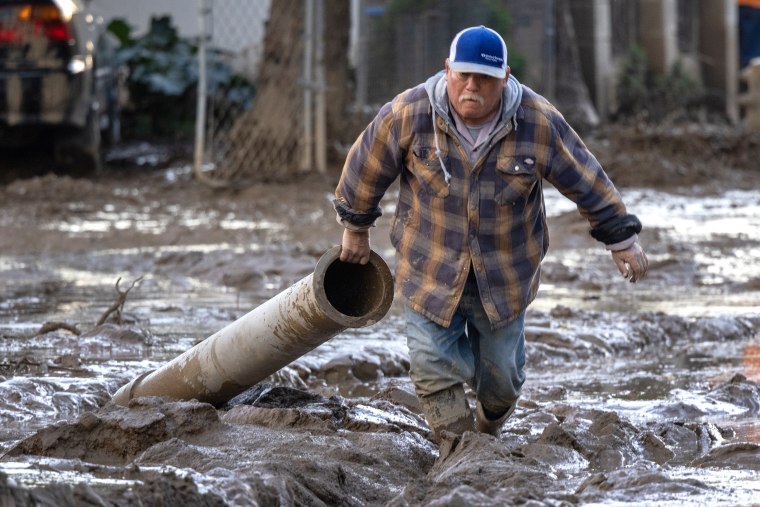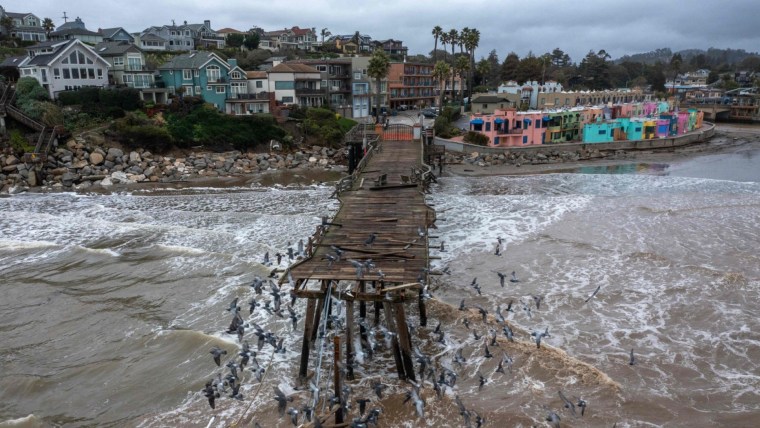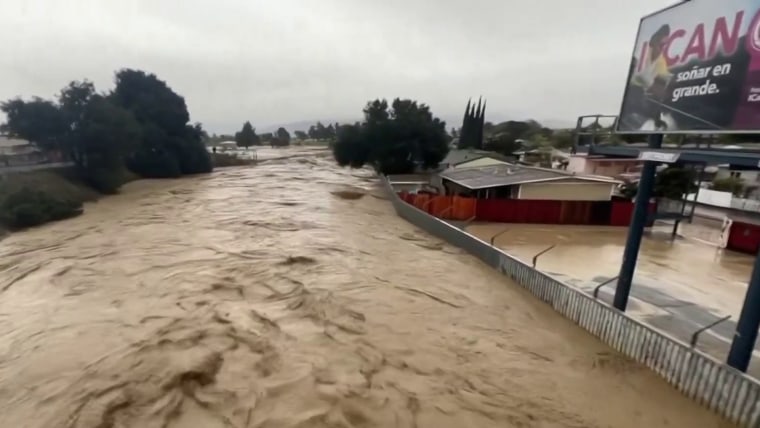[ad_1]
Snow piled up by the foot over the weekend on California peaks and mountain passes, closing roadways for avalanche control work, backing up traffic and forcing at least one ski resort, Sierra at Tahoe, to cancel its Monday operations despite “legendary” riding conditions.
California’s snowpack is on pace for a remarkable season after nearly three weeks of atmospheric river storms pummeled California with heavy precipitation. Every region of the Sierra Nevada has more than 200% of its typical snowpack for this time of year.
“Epic levels,” State Climatologist Michael Anderson said in a news briefing Monday. “We’re on pace ahead of the record pack ’82 and ’83.”

That means the state’s snowpack, which typically accounts for about 30% of its water supply, is the highest it has been on this date since record-keeping began in 1950.
California’s hearty snowpack should help ease some of the state’s drought worries this summer, but it also raises the possibility of spring flooding as all that stored moisture melts out.
“It does set the stage for potentially dealing with flood issues as we move through the snowmelt season, something to keep in the back of your head,” Anderson said. The likelihood of spring floods will depend on how much more snow accumulates later this winter.
The current barrage of storms is expected to end this week. California has had nine atmospheric river storms since Christmas, Anderson said. A 10th is expected Wednesday, but it’s far weaker and won’t produce nearly as much impactful precipitation.
“We’re finally getting through the parade of storms,” Anderson said. “We’re starting to see rivers work through final crests and begin receding.”
Storm impacts were felt across the state Monday. Rescuers were able to save a person trapped by floodwater in Otay Lakes, near San Diego, the San Diego County Fire Protection District said. Meantime, a mudslide closed part of State Route 13 in the Oakland area, the state Transportation Department said.

Anderson said forecasts predict dry weather in California through the next two weeks, giving the state a chance to dry out after heavy precipitation continued to crumble away infrastructure and force rescues over the weekend.
Video shared Saturday in Pescadero showed a rain-soaked hillside collapse, causing part of its asphalt roadway to slide down a ravine.
Several areas of coastal Highway 1 were unstable or buried by landslides, the Transportation Department tweeted.
Rescuers in Orange County pulled a man out of a storm channel Saturday evening, one of several storm-related rescues reported in the state.
Weeks of seemingly nonstop rain and snow have taken a significant toll on the state.
The California Geological Survey counted at least 402 landslides since Dec. 30, and at least 19 people have been killed because of the severe weather. Officials are just beginning to assess cleanup timelines.
The Ventura County Sheriff’s Office reported debris had piled up about 40 feet high on a canyon road. It expected it could take as long as three weeks to clear the road and up to six months for repairs.
President Joe Biden on Saturday declared that a major disaster had struck California, making federal disaster funding available to people in the hard-hit counties of Merced, Sacramento and Santa Cruz.
Biden previously made an emergency declaration for the state, approving federal emergency relief in 17 counties.
[ad_2]
Source link


